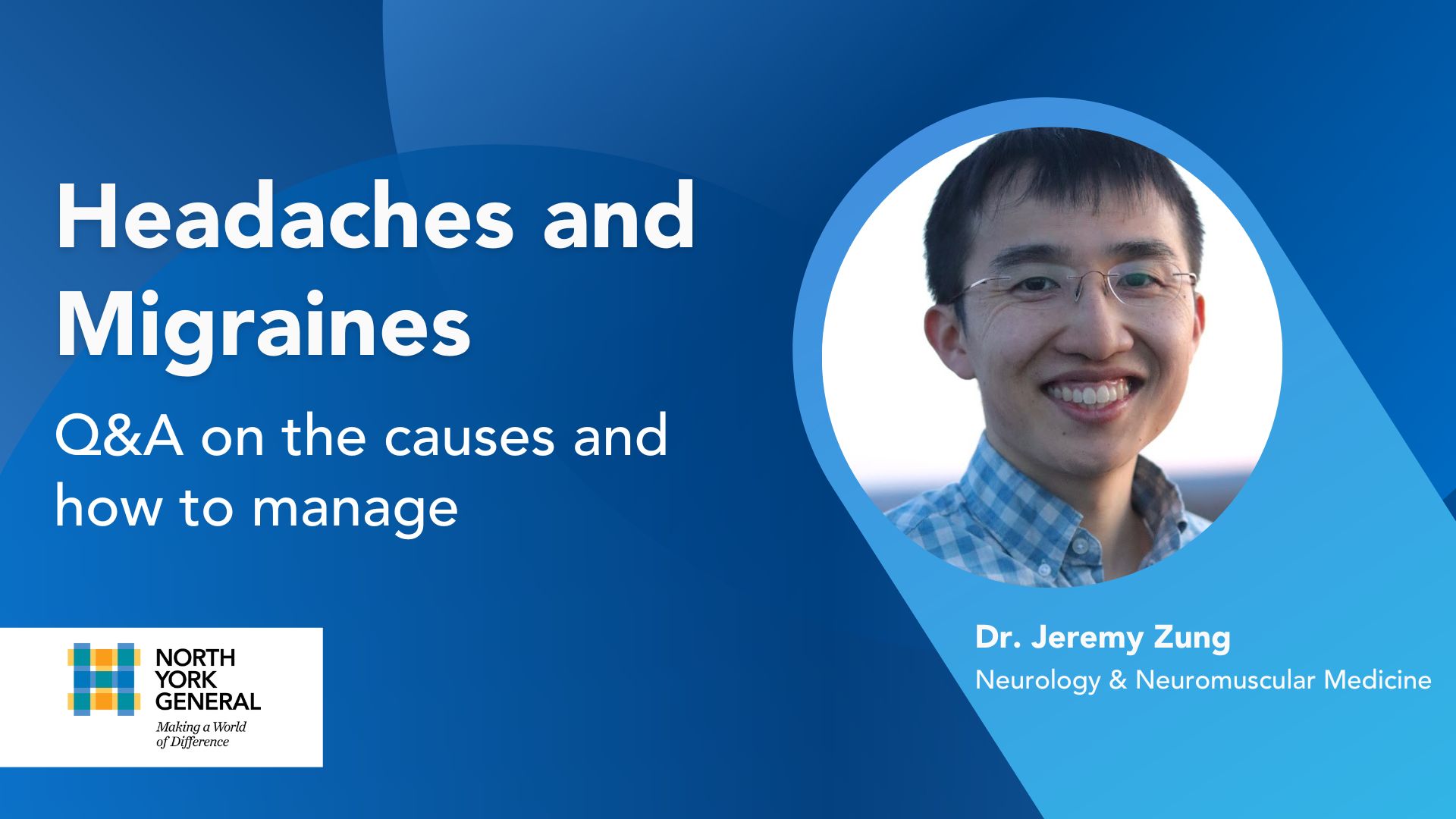Suffer from headache pain? This NYGH neurologist shares his tips for relief

The Pulse sat down with Dr. Zung to learn more about what causes headaches and migraines—which affect 1 billion people worldwide—and how best to manage the pain they cause.
Dr. Zung joined North York General Hospital as a staff neurologist after completing his training and residency at University of Toronto in neurology. He also studied neuromuscular medicine at Yale School of Medicine for a year.
What is the difference between headaches and migraines?
‘Headache’ is a broad term referring to any head pain which can have many different causes.
The most common type of severe headache is a migraine. A migraine is not just the headache, but all the accompanying symptoms that occur before or after the headache. Research is showing that different parts of the brain become active during the different migraine stages.
What causes headaches?
The short answer is that there is no simple explanation or main cause for headaches. Some causes can include being triggered by increased pressure in the brain or muscle tension around the head and jaw. Rarely do headaches mean there is a serious brain condition.
How can we prevent headaches?
Making sure we are in the right mental space and pursuing a healthy lifestyle is essential to preventing headaches. Consider the following:
Do mindfulness exercises, meditation, or yoga to manage overall stress levels
- Get a good night’s sleep every day
- Eat balanced and regular meals that are full of nutrients, and aim for high protein intake in the morning
- Drink six to eight glasses of water per day
How do we manage headache pain?
Acute medication can be used when you sense a headache coming on and for no longer than 15 days a month. These medicines include non-steroidal anti-inflammatories like ibuprofen and naproxen and are available over the counter. Prescription medications such as triptans are particularly effective for migraines.
Preventative medicines can be used on a regular basis to make the brain less susceptible or sensitive to developing migraines. Riboflavin (vitamin B2) and magnesium citrate are over-the-counter supplements that can be helpful. Other options include blood pressure, anti-seizure, or anti-depressive medications and should be used on the advice of your health care provider.
This interview has been edited for length and clarity.
